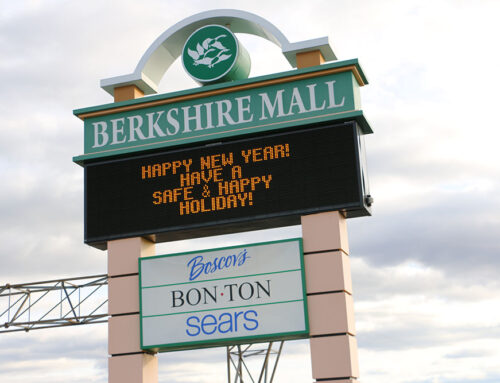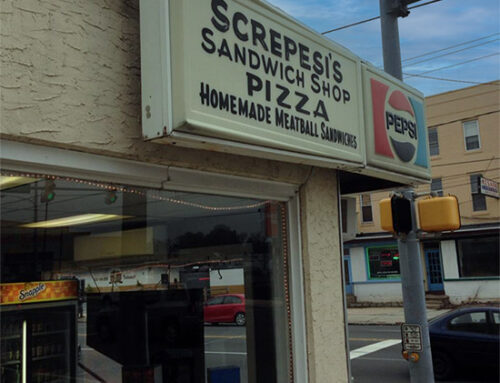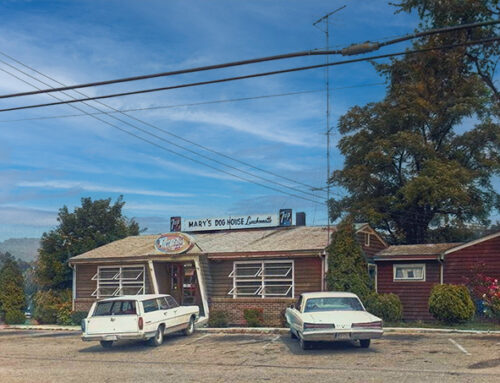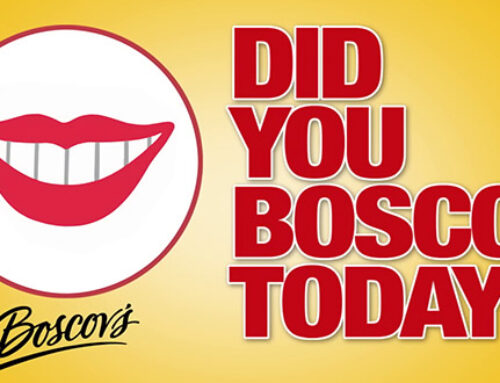In the annals of Reading, Pennsylvania’s commercial history, few stories capture the spirit of grit, humor, and community connection as vividly as that of Solomon Boscov, the Russian immigrant who built a retail empire from a few dry goods and a horse-drawn wagon. What began in 1911 as one man’s attempt to carve out a life in a new country grew into a chain of department stores that became synonymous with Berks County itself.
A Humble Arrival
Born the son of Molshe and Vassa Boscov, Solomon left his native Russia in 1911 with only twelve dollars in his pocket. His earliest attempt at finding work in Washington, D.C. proved fruitless, though he briefly tried his hand at selling lemonade on city streets. Eventually, he made his way to Reading, Pennsylvania, where the linguistic landscape worked in his favor. Many locals spoke Pennsylvania Dutch, a dialect closely related to his native Yiddish, giving him the ability to connect quickly with customers.
With his meager savings, Solomon bought a small supply of dry goods, packed them into a sack, and began to peddle door-to-door. His warmth, honesty, and humor endeared him to farmers and homemakers alike, who soon welcomed “Sammy” into their kitchens and parlors. He often bartered merchandise for meals, did chores for lodging, and before long had established a dependable route throughout Lancaster and Bucks counties.
From Sack to Storefront
Within a year, Boscov’s determination paid off. He saved enough money to purchase a horse and wagon, expanding both his territory and his inventory. Soon he entered into partnership in a general merchandise store, and by 1914 he had gone fully independent, opening a small dry goods shop in the front room of his family’s living room at Ninth and Pike Streets in Reading. Solomon, his wife Ethel and his family resided in an apartment on the second floor.
The store, first called Economy Shoe and Dry Goods, quickly became a neighborhood anchor. Solomon knocked down walls into adjoining rowhouses to expand the shop, until it stretched across four properties. The floors sloped, the aisles were narrow, and the shelves were packed so tightly that shoppers often had to turn sideways to make their way through. Yet customers loved the variety, the prices, and the friendly service.
Below: Boscov’s Department Store, 1401 North Ninth Street as it appeared around 1947.

A Family Affair
The Ninth and Pike store was not just a business—it was a family classroom. Solomon’s children grew up there, learning lessons in work, integrity, and ingenuity. Young Albert Boscov, who would later carry his father’s dream into a regional retail empire, earned his first dimes by catching flies for his father—fifty flies equaled enough for ice cream or a trip to the movies. In another memory preserved by his sister Ellen, Albert mischievously swapped a fork for the dreaded cod liver oil spoon, leading to a playful chase around the store.
The shop embodied a unique spirit of fun that would later become Albert’s philosophy of “retail is recreation.” Promotions often bordered on the theatrical. One famous event brought Roy Rogers’ horse to the store for a celebrity appearance—a marketing triumph that ended with Albert mopping the floor after the equine guest left behind a mess.
The Landmark Store
Stepping inside the Ninth and Pike store was an experience straight out of mid-20th century Americana. Former employees remembered the shoe-fitting x-ray machine, a marvel of the time, that let children see the bones of their feet inside new shoes. Today such a device would be unthinkable, but in its day it was pure magic, a mix of science and play that made shopping unforgettable.
Customers and staff alike fondly remembered the warmth of Solomon himself. Even in his later years, the “sweet old man” was known to roll up his sleeves and unload truck shipments alone, insisting nothing go to waste.
Growth and Tragedy
By the mid-1950s, the family business was shifting into high gear. In 1954, Solomon’s son Albert and son-in-law Edwin Lakin formally joined the company, spearheading renovations at Ninth & Pike and laying the groundwork for suburban expansion. The first outpost, Boscov’s West (Sinking Spring), opened on November 22, 1962, followed by a second Berks County branch in Muhlenberg Township (1965) known as Boscov’s North.
Below: Renovated Boscov’s Department Store, 1401 North Ninth Street.

Setbacks arrived as swiftly as success. The original Ninth & Pike store was destroyed by fire in February 1967, a blow felt across the neighborhood that had grown up around it. Even so, the company pressed on: on November 20, 1968, Boscov’s East (Exeter Township, Perkiomen Avenue) opened its doors—only for tragedy to strike again that very evening when the Sinking Spring West store burned to the ground.
Below: Ninth & Pike and West store fire.


Resilience defined the response. About a year later, Boscov’s rebuilt and reopened the West store, signaling to customers and competitors alike that the company intended not merely to recover, but to grow. That intent became unmistakable in January 1972, when Boscov’s broke ground on its first store beyond Berks County, along Route 422 near Lebanon—a pivotal step from hometown institution to regional retailer.
Legacy and Memory
On August 3, 1999—exactly thirty years after Solomon’s death—an historical marker was placed at Ninth and Pike to commemorate the site of the original store. The recognition was not just for a building but for the story of an immigrant who built something lasting from nothing more than determination, charm, and a sack of dry goods.

For those who grew up in Northeast Reading, the Ninth and Pike store was more than a place to shop. It was a hub of community life, a training ground for the next generation, and a quirky, beloved institution where sloped floors and x-ray shoes sparked memories that still live on.
Today, the Boscov’s chain stands as one of the largest family-owned department store operations in the country. But at its core remains the same foundation Solomon laid: hard work, fair prices, and a connection to the people he served. The story of Solomon Boscov is not just the tale of a successful retailer; it is the quintessential American immigrant story—one of resilience, reinvention, and the belief that a corner store can grow into an empire without ever losing its heart.




